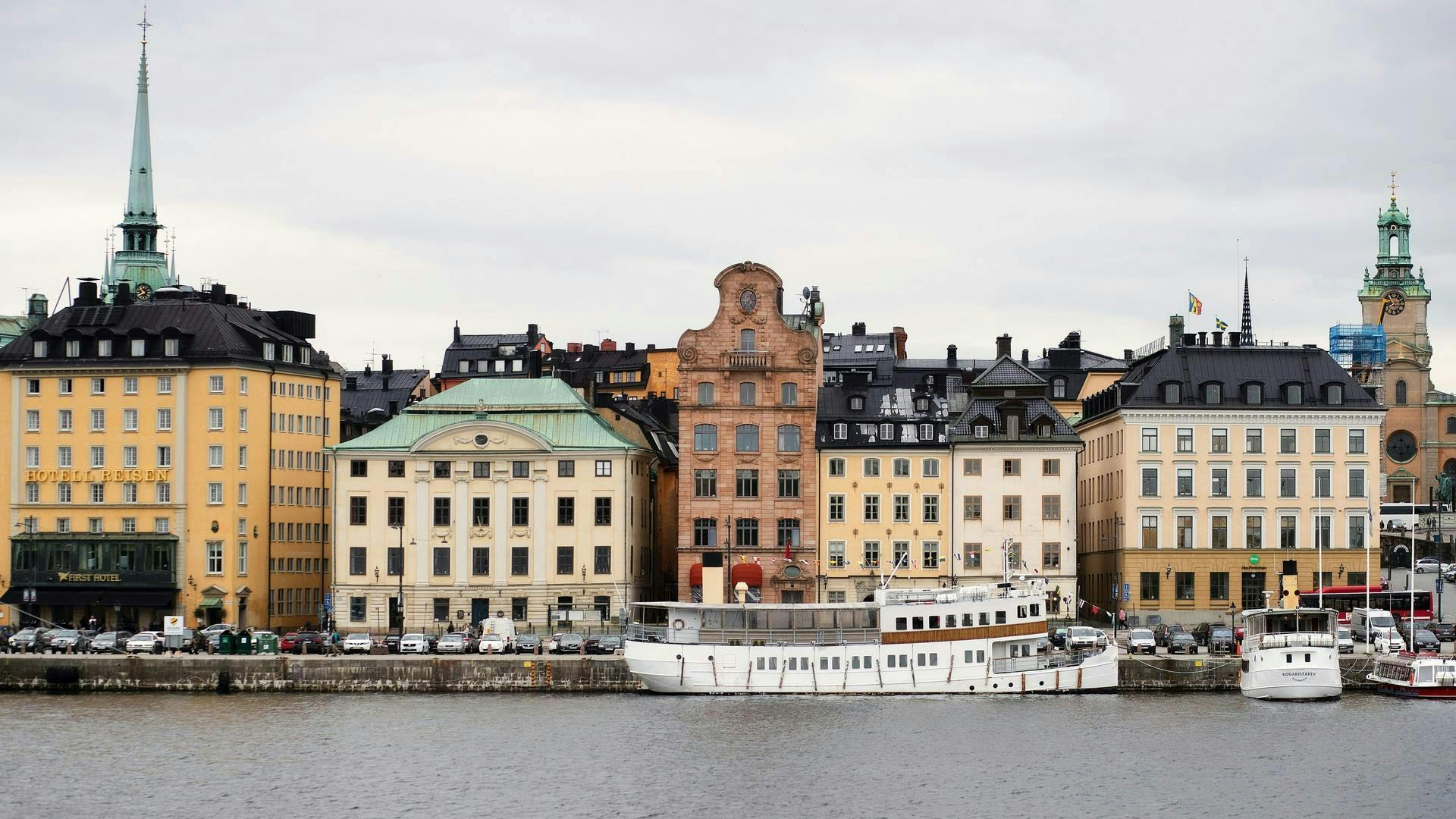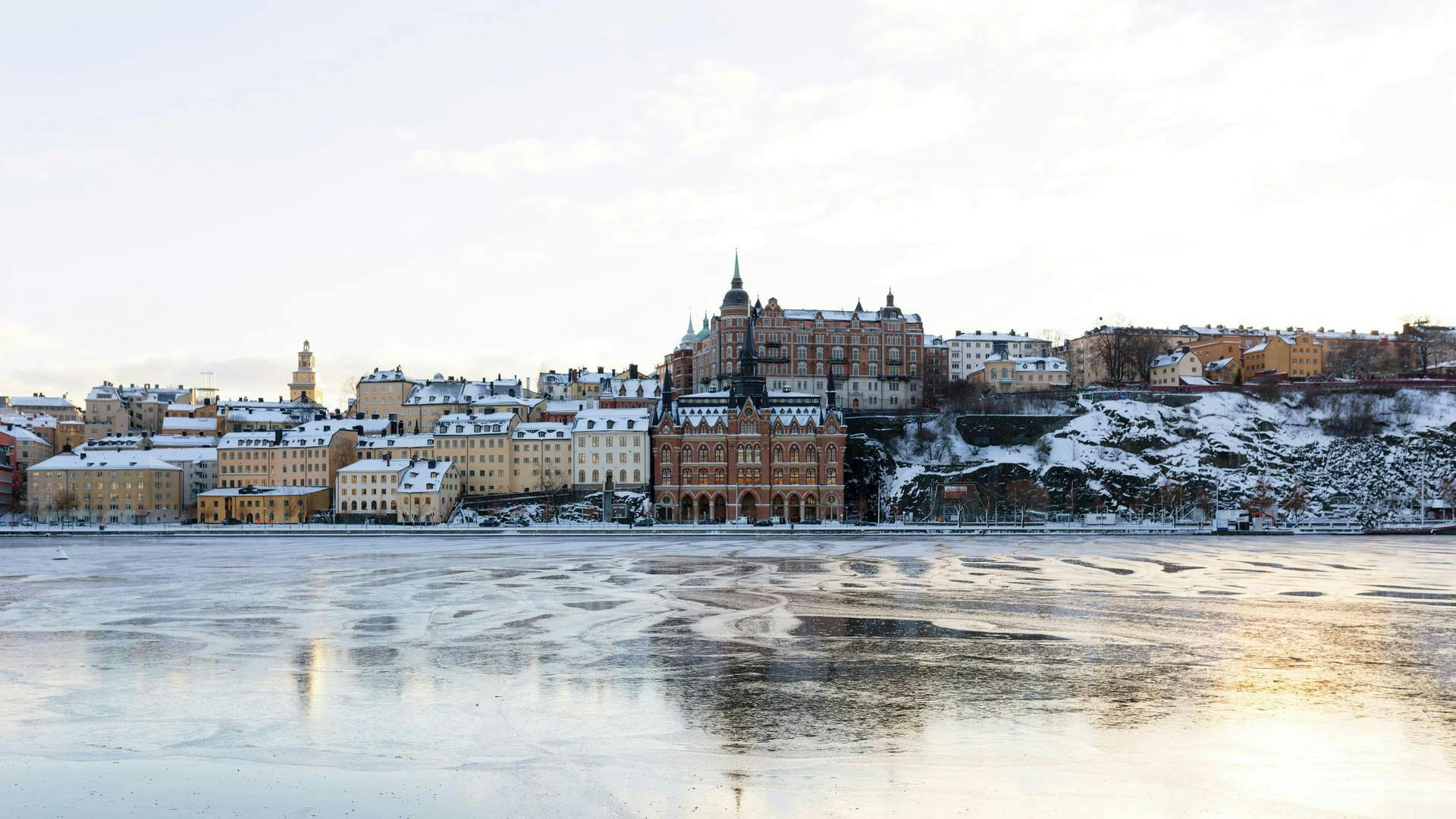Health, wealth and happiness: The keys to Nordic startup success
he Nordic region’s homegrown investor network, entrepreneurial mindset and highly educated workforce have proven to be the perfect recipe for a sturdy startup scene. But there might be obstacles ahead that could impede its growth.

Photo: Jon Flobrant on Unsplash
Startup Guide has just launched its first book in one of the most highly skilled and innovative regions in the world: the Nordics. Consisting of five countries (Denmark, Finland, Iceland, Norway, and Sweden), the Nordic region consistently scores high ratings for quality of life, a stable political environment, and a supportive investment landscape.
The Nordic region is home to just 25 million people, yet its economic growth has been tremendous. Although the Nordics contribute only 8 percent of the European GDP, they account for 50 percent of European unicorns (startups that exceed a valuation of $1 billion). The region’s success stories range from Spotify, Sweden’s famous digital music service, to the Danish gaming development platform, Unity Technologies.
While each of these countries has a tight-knit ecosystem with unique assets, they like to consider themselves a part of the overarching Nordic community. “No one sees different countries; they see one region,” says Kim Oguilve, CMO of Maria 01, a startup campus hub in Helsinki. “Together we are stronger, bigger and better.”
Whether it’s the unprecedented influx of investment in recent years or the Scandinavian mentality that advocates helping others, the Nordic ecosystem is staking a claim as one of the most innovative and profitable in the world. We take a look at the key factors behind this claim.
A homegrown investment landscape
One of the strengths of the Nordic ecosystem is its homegrown network of investors that have poured an increasing amount of capital into the region’s startups.
According to The Nordic Web, a platform that specializes in providing news and data analysis on Nordic tech companies, 2018 saw a record quarter for capital deployed into the region, with $1.1 billion invested in the second quarter– this is even without Spotify’s $1 billion and $526 million rounds this year.
2017 saw a record level of investment for technology companies across the region, with Startup Guide Nordics documenting 793 investments overall. Nordic tech companies are consequently staking an unequivocal claim as some of the most profitable in the world.
According to a 2017 report by UK investment bank GP Bullhound, of the five European businesses most likely to reach a $50 billion valuation, four have their roots in Scandinavia: Spotify, e-invoicing company Klarna, and gaming companies Supercell and Unity.
No one sees different countries; they see one region. Together we are stronger, bigger and better.
The rise in impact investment in the region indicates that wealth, however, is not the only priority for entrepreneurs. Statistics from the Nordic Web show that there have been 163 social impact investments in the region since 2014, totaling $452.7 million.
According to Anita Schjøll Brede, CEO and cofounder of Iris.Ai in Norway, the Nordic region has a unique “Scandinavian mindset” that inspires a policy of taking care of each other – something that she believes is a product of the “socialist nature of the countries.”
This humanitarian drive to assist each other in times of need is mirrored in the number of social impact startups in the region that are addressing some of the world’s most pressing challenges.
These include No Isolation – a Norwegian startup featured in our Startup Guide Oslo book – which designs communication tools to combat loneliness and social isolation, and M-PAYG, a solar energy systems provider that has introduced electricity to the world’s largest refugee camps.
A democratic way of thinking
The change in trends toward supporting startups with a social agenda is reflected in the democratic nature of Nordic countries.
The Nordics have a history of “well-functioning democracies, a high level of trust, and
good welfare systems” says Ida Faldbakken, cofounder and creative director of Katapult Future Fest in Norway.
This democratic infrastructure is reflected in working practices that espouse flat hierarchies, gender equality, and the inclusivity of all voices, young and old.
Another notable asset of the Nordic region is the social security systems of its various countries.
In 2017, the UN World Happiness Report found Denmark to be the second happiest country in the world, identifying social support as one of the contributing factors. The Danish government invests in free healthcare, higher education, subsidized childcare and generous unemployment insurance schemes.
Carla Cammilla Hjort, cofounder of Space10, a research and design lab in Copenhagen, says that what makes Denmark an attractive place for entrepreneurs is the fact that, “if everything fails, you can still go back on the welfare system and not end up on the street.”
Similarly, while taxation in Finland is high, a large percentage is channeled back into social services, which accounts for the high standard of the public health system.
According to Aki Soudunsaari, cofounder and CEO of Finnish health tech company Naava, the “financial and social safety net” provided by the government in each of the Nordic countries makes the region an apt place for entrepreneurs to test their nascent ideas without the fear of running out of cash.
A growing problem with accessing talent
The Nordic region’s free and highly acclaimed education system produces entrepreneurs that are adept at problem-solving and critical thinking – skills that are sought after by the many burgeoning industries across the Nordic countries.
While the region seemingly nurtures its homegrown experts, a recent report shows that the demand for talent within the region far exceeds its supply.

Talent Garden RainMaking, a coworking space in Copenhagen. Photo: Startup Guide.
With the size of the employment market in each country being significantly smaller than others within Europe, accessing global talent becomes all the more important.
However, the Nordic region’s strict immigration laws ostensibly make it difficult for foreign entrepreneurs to set up their businesses here. Let’s not forget that the cost of living is also significantly higher in Nordic countries than in other parts of the world.
Denmark is considered the least accessible of the Nordic countries. While EU and EEA citizens are free to find work in Denmark, the country’s regulations can make it difficult for other international citizens to secure working visas and residency status.
The same can be said for other countries in the region. According to a recent report, Stockholm has suffered the loss of many tech workers who have been forced to leave the country because of deportation or housing issues.
According to Natalia Rincón, COO of AI smart city platform CHAOS Architects in Finland, the scarcity of talent in the region has caused a negative sense of competitiveness to arise among employers. As each country within the region vies for the same workforce, employers enter a wage war that makes existing talent unaffordable to startups.
In Natalia’s opinion, the Nordics have the potential to become a leader in areas such as Information Technology, but the region lacks overall industry experience. This is a problem that, in her opinion, could be remedied by the influence of skilled entrepreneurs from more mature ecosystems.
Natalia places this responsibility firmly in the hands of government immigration policy. “We want to open the ecosystem for diverse know-how,” she says. “That means making room for e-visas and the ability to bring in know-how from other parts of the world.”
Some countries in the Nordics are, however, producing schemes that aim to bring international talent to their shores. The Finnish Startup Permit, targeted at founders from outside the EU, has been created to encourage international growth entrepreneurs to build startup companies in Finland. The permit allows for a two-year stay, after which it can be renewed, and it doesn’t cover investments or financial support.
Making the Nordic countries more accessible to skilled foreign experts could enable employers to select from a wider talent pool and help facilitate the transfer of skills to local entrepreneurs.
Utilizing Nordic potential
In the Nordic region, a shared cultural history as well as a regional adherence to the esoteric Law of Jante – a code of conduct that eschews overt self-promotion and advocates moderation and humility – unites the countries as a community dedicated to helping each other succeed.
We want to open the ecosystem for diverse know-how. That means making room for e-visas and the ability to bring in know-how from other parts of the world.
“By being part of the Nordic communities, we can leverage each country’s talents and skills,” says Hans Henrik Agger, CEO of #CPHFTW, a non-profit community organization that is working to unite the Nordic startup scene. He adds that learning from others and sharing success stories is invaluable for personal, and not just regional, growth.
However, according to Micaela Rosenlew, Head of Nordic operations at Helsinki-based startup summit Slush, the Nordic ecosystem hasn’t yet “utilized the full potential” of each country, and more could be done to improve the overarching Nordic ecosystem.
The Nordic Startup Awards, a competition that showcases the most impactful startups in the Nordic ecosystem, is a good example of an effort to inspire closer collaboration between the region’s countries. Startups and entrepreneurs are provided with a platform to inform the rest of the world of their company missions and celebrate their victories, no matter how small.
Looking ahead, startups will continue to be nurtured by the Nordics’ profitable ecosystem, but widening the community to foreign talent may help industries in need of expertise.
Main photo: Unplash/Jon Flobrant

